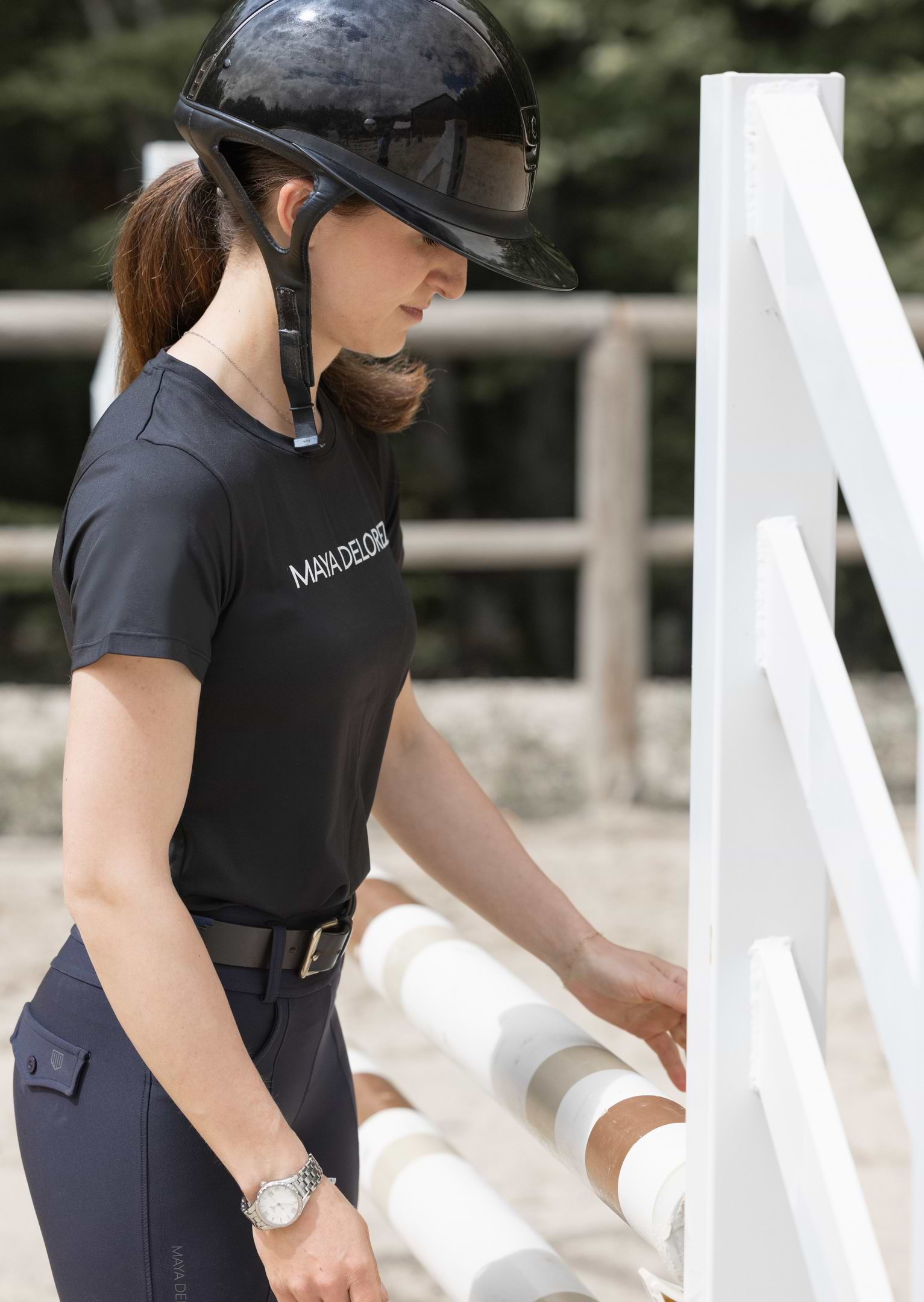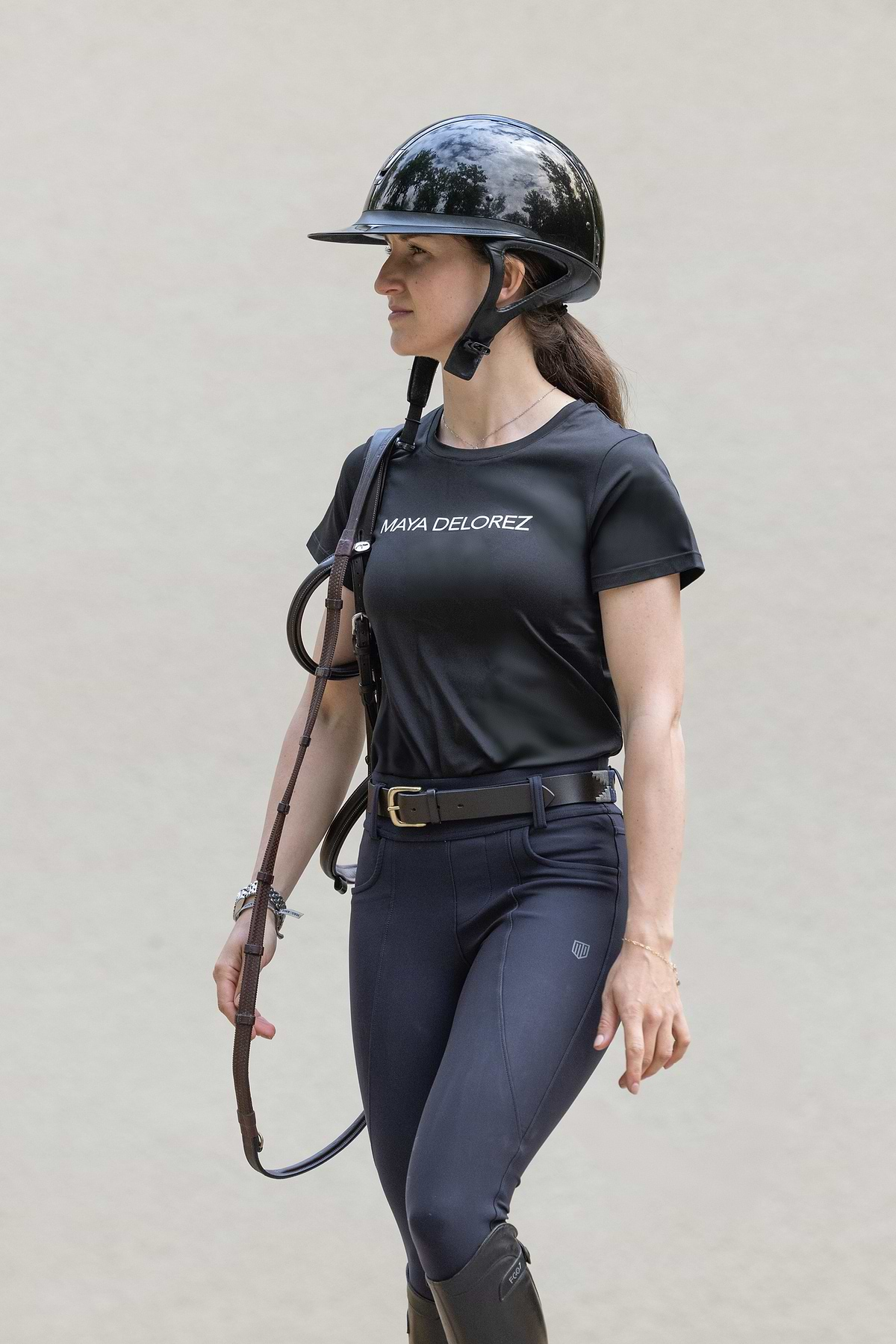Callie Menut:
Callie Menut's Optimal Training Week
Learn how the elite flat rider Callie Menut structures an optimal training week for the horses she rides. Get some inspiration and pick the parts that work for you and your horse!
Greta
Thu 15 Aug - 24

Callie Menut:
Callie Menut's Optimal Training Week
Learn how the elite flat rider Callie Menut structures an optimal training week for the horses she rides. Get some inspiration and pick the parts that work for you and your horse!
Greta
Thu 15 Aug - 24
Callie shares how she generally plans a training week for the horses she rides. It's important to know that the horses Callie rides are elite-level show jumpers and likely have a different routine than horses at other levels or in other disciplines. But let yourself be inspired and pick the parts that apply to your horse.
It's of course individual from horse to horse but, generally, what do you think is an optimal training schedule and how do you prefer to allocate a training week?
– A general rule is to get the horses out three times a day, whether they are ridden, longed, given paddock time, or put in a walker. This is how I have been taught to take care of horses. They have beautiful spacious stalls but movement and being outdoors is the best.
The Week
Monday
"Let's say the horse was away over the weekend for a show and got home not too late Sunday evening. I would ride the horse and give him a light workout to loosen up his body. These horses are in super condition but still, jumping 155 – 160 cm rounds is demanding and recovery is extremely important. They could have some muscle stiffness from the effort or the transport, and a slow trot and easy canter on the galop track will feel good for the mind and body. But as soon as this is done, I take the saddle off and put the fly mask on, and the horse will spend the rest of the morning out in the paddock!"
Tuesday
"The horse would normally have a day off, meaning he spends the morning in the paddock and then goes to the walker in the afternoon. Sometimes, I will also add a hack in the woods on this day. Some horses love it while others find it more stressful than enjoyable because they might be scared of cars or would rather stay with their friends, for example. Therefore, I adapt this plan to each specific horse. It is important that this day is totally relaxed for them."
Wednesday
"Time to get back to work! If I am riding a skilled competition horse, I think I would take him out on the gallop track again to work on his stamina in straight lines. If it’s a greener or fresh horse, I would rather get their mind focused and set up some ground rails or cavalettis in the arena, as it keeps them busy, so they don’t think about being too playful. I love when a horse plays a bit, is fresh, and lets me know that they are enjoying their job and feeling good. But I don’t like it when it goes overboard! I try to have a mutual agreement with the horses I ride: we work and have fun within limits."

Thursday
"Time for some classic flatwork. I like to go through my routine with a long and low neck to start, and then work on the horse’s balance. Most importantly, I like to have the horse go right, left, and straight (the latter often being the most difficult!), at different rhythms. Some shoulder in or hanches out can be super helpful to work on their balance, as well as some counter canter or pirouettes. Given my size and way of riding, I try to be very light and have the horse responsive and alert to me. I find this way of doing it so interesting and I am always 100% focused in my flatwork with the horse. I am always trying to find the right balance and connection with them."
Friday
"I like to do some gymnastics. Training over small jumps is great to work on steering and precision without asking too much from the horse. It’s also a nice way to strengthen the horse’s body and have their tendons and ligaments working!"
Saturday & Sunday
"On one of the days, I build a course, and we train all the horses over it, adapting the height and difficulties for each horse. The other day will be an easy day, hacking or longing!"
Note:
"The home schedule also depends on the show schedule... These horses travel a lot, and sometimes they are only home for a few days before heading back to another show. So, I make the plan depending on the horse, on his fitness, on how he feels – being aware of whether your horse is happy or not is so important! The weather can also have an impact; it has been raining a lot here lately, which affects how we organize the training.
You also need to keep in mind their monthly or yearly show schedule to ensure you target the right shows, for the right horses, at the right time (small or big arenas, sand or grass, indoor or outdoor, championships, etc.). This will impact their home training as well, as you can’t have your horse in top form all year round. They also need some holidays!"
– Callie Menut
